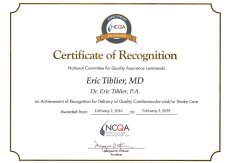Echocardiography
For those who have a heart condition, you are probably already acquainted with the world of cardiologists. These doctors concentrate on discovering and managing diseases of the heart. As you get into the care of one of these experienced physicians, take some time to get acquainted with the equipment of the trade, as your doctor will turn to a number of these to help make you healthy once again.
Your doctor might suggest echocardiography if you’re struggling with warning signs of heart disease. For example, symptoms like difficulty breathing and swelling within the legs may be because of weakness of the heart (heart failure), which may be seen on an echocardiogram.
Why Do I Need Echocardiography?
Doctors also make use of echocardiography to provide information about:
- The size of your heart. An inflamed heart might be the result of hypertension, leaky heart valves, or even heart failure.
- Heart muscles which are fragile and aren’t moving (pumping) correctly. Weakened regions of heart muscle might be due to damage from a heart attack, or weakening might mean that the spot isn’t getting adequate blood supply, which may be because of coronary artery disease.
- Issues with your heart’s valves. Echocardiography can indicate whether any of the valves of your heart don’t open up normally or don’t form a full seal when closed.
- Abnormalities within the structure of your heart. Echocardiography can identify a number of heart abnormalities, like a hole in the septum (the wall which divides the 2 compartments on the left side of the heart from the 2 compartments on the right side) and other congenital heart defects (structural issues present at birth).
Preparing for Echocardiography
Echocardiography can be carried out inside a doctor’s office or a hospital. No specific preparation is required for most kinds of echocardiography. Usually you are able to eat, drink, and take any medications as you ordinarily would. The exception is if you are having a transesophageal echocardiography. This test often necessitates that you do not eat or drink for eight hours before the test.
If you are having a stress echocardiography, there might be specific preparations. Your doctor will advise you on how to get ready for your echocardiography test.
Echocardiograph Equipment
An echocardiograph is an image of one’s heart taken with the use of ultrasound waves. To capture these photos, cardiologists inject their patients with dye or saline to better reveal the different chambers of the heart. Then, the physician or sonographer makes use of an ultrasound transducer to record images of the heart on a computer screen. Frequently, electrodes are also put on the chest area to allow the doctor to take an EKG simultaneously.


